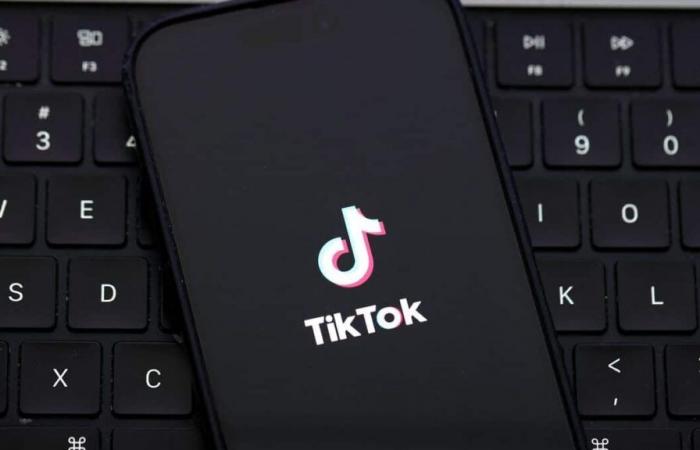The TikTok application is accumulating controversies around the world, from its ban on teenagers in Australia to accusations of espionage in the United States, including the European Union, where an investigation has just been opened after suspicions of foreign interference in Romania.
• Also read: “The first one to move is gay”: associations and unions warn of a homophobic game on TikTok
• Also read: Australia wants to force GAFAM to pay for the media content they relay
• Also read: TikTok Canada challenges Ottawa order to cease operations
Influence campaign in Romania
The Romanian authorities suspect the far-right candidate Calin Georgescu, who came first in the first round of the presidential election in November to everyone’s surprise, of having benefited from an illicit support campaign orchestrated by Moscow, notably on TikTok, owned by the Chinese group ByteDance.
The European Commission announced on Tuesday the opening of an investigation which will focus in particular on TikTok’s recommendation systems, suspected of having been used for “coordinated manipulation”.
It will also examine the platform’s management of “political advertisements and sponsored political content”.
In the event of proven infringements, the Commission can, under the Digital Services Regulation (DSA), impose fines of up to 6% of its annual turnover on the offender. In the event of serious and repeated violations, platforms can even theoretically be banned from all activity in Europe.
In the hot seat in the United States
In the United States, a law passed in April requires the Chinese owner of TikTok to sell this social network by January 19 – accused of allowing Chinese authorities to unduly collect data on American users – otherwise the platform will be prohibited in the territory.
The application, which claims 170 million active users in this country, petitioned the United States Supreme Court on Monday to request a suspension of the application of this law.
She denounces “a massive and unprecedented restriction of freedom of speech” and has repeatedly denied having transmitted information to the government in Beijing.
To preserve their data, the American federal government, the European Commission as well as the British parliament and government had already banned the downloading and use of TikTok on their employees’ professional devices in 2023.
Banned for teenagers in Australia
The social network, which has more than 1 billion active users worldwide, is particularly popular with young people, attracted by its ultra-short video formats which scroll continuously.
The application surpasses all its competitors in its ability to capture attention. By 2024, Android users used it for an average of 34 hours each month, according to a report from We Are Social.
But this dazzling success comes with criticism.
Its detractors accuse TikTok of confining its users to content silos, via an opaque algorithm, and of promoting the dissemination of disinformation and illegal, violent or obscene content, particularly among young people.
In Australia, Parliament passed a law at the end of November banning access to social networks for those under 16, one of the strictest measures in the world in this area.
TikTok had already been in turmoil last spring when the company launched in France and Spain a function of its new TikTok Lite application, which rewarded users for time spent in front of screens, triggering the opening of an investigation through Brussels.
The European Commission then estimated that the mechanism posed “serious risks for the mental health of users”.
“The available brain time of young Europeans is not a bargaining chip for social networks,” the European Digital Commissioner at the time, Thierry Breton, criticized on X.
The social network had to backpedal and announced the definitive withdrawal of this rewards program.
Threat to public order?
TikTok has been banned several times, permanently or temporarily, during violent events.
The application was thus temporarily suspended by the French government in May in New Caledonia during deadly riots against an electoral reform project.
In Nepal, TikTok, accused of disrupting “social harmony”, was banned between November 2023 and August 2024.
This suspension, condemned by defenders of freedom of expression, also followed an anti-government demonstration whose leader was popular on TikTok.
The social network has also been banned since 2020 in India, after deadly clashes on the border with China.






